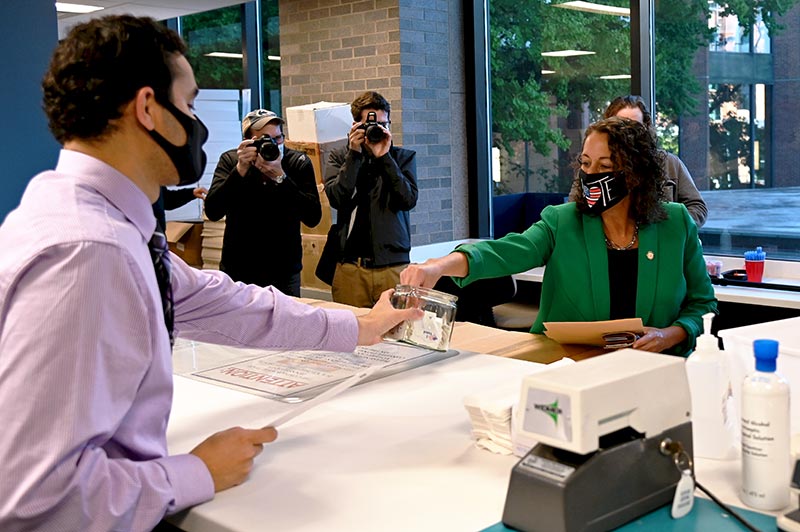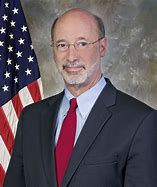Harrisburg, PA –Secretary of State Kathy Boockvar today encouraged Pennsylvania voters to educate themselves about their rights before they vote in person on election day, November 3.
“The Pennsylvania Department of State is committed to protecting every eligible voter’s constitutional right to cast their ballot safely and free from intimidation,” said Secretary Boockvar. “Voters should educate themselves on their rights before they go to the polls on election day.”
Here are some important tips regarding voter rights in Pennsylvania:
- Only first-time voters, or those voting for the first time in a new precinct, must show ID. Acceptable ID includes both photo and non-photo ID. Registered first-time voters who do not bring ID to the polls can return with identification or must be offered a provisional ballot.
- Voters who applied for and received a mail ballot and then decide they want to vote at their polling place must bring at least the larger declaration envelope and their ballot to be voided. The Department of State recommends that voters bring their entire mail ballot packet with them, including both envelopes. They may then vote on their county’s voting system.
- If a voter applied for a mail ballot but does not return it and no longer has the mail ballot and envelopes, they may vote by provisional ballot at their polling place on election day. Their county board of elections will then verify that they did not vote by mail before counting their provisional ballot.
- If a voter’s name is not in the poll book, poll workers can call the County Board of Elections to see if the voter is registered in another precinct in the county. Registered voters who are in the wrong precinct polling place should go to the correct polling place to vote. A voter who believes he or she is registered in the precinct and should be listed in the poll book may cast a provisional ballot.
- Voters who moved within Pennsylvania but did not update their address in time before the election may vote one more time in their previous precinct, as long as they update their address at the polling place.
- If 50 percent or more of the voting machines at a polling place are not working, voters have the right to use an emergency paper ballot. Poll workers should immediately offer the ballots but, if they do not, voters should request one rather than leave without voting.
- If a voter is challenged on the basis of identity or residency, the voter may vote normally by signing a challenge affidavit and producing a witness who is also a registered voter in the precinct to vouch for them. If the voter cannot or does not want to produce a witness, the voter may cast a provisional ballot. Identity, residency and qualifications as an eligible voter are the only bases for challenging a voter at a polling place.
- Voters have the right to assistance at the polling place, including foreign language or literacy assistance. A voter may select any person to assist as long as the person is not their employer, union representative or the Judge of Elections. Voters do not need to be designated as “assistance permitted” in the poll book to receive help. A person who wants assistance will be asked to sign an Assistance Declaration at the precinct, unless the poll book already indicates “assistance permitted.”
- Voters have the right to refuse assistance.
- Voters have the right to vote without being subjected to intimidation, harassment or discriminatory conduct. A voter who experiences intimidation should report it to the county board of elections and the district attorney’s office. Voters can also call the Department of State at 1-877-VOTESPA (1-877-868-3772) or the U.S. Department of Justice’s Voting Section at 1-800-253-3931.
In addition, the Department of State website at votesPA.com can help voters with election-related questions and information, including:








